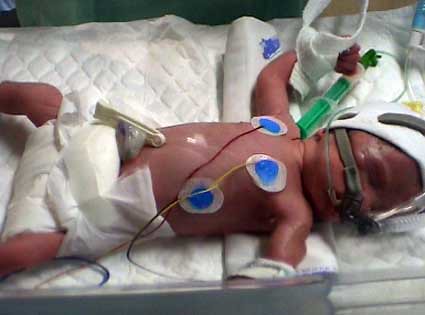Disclosure: This post may contain affiliate links, meaning we get a commission if you decide to make a purchase through our links, at no cost to you. Please read our disclosure for more info.

A normal, full-term pregnancy lasts for 39 weeks, while babies prior to the 37th week of gestation are considered premature. Twins who are born prior to the 37th week of gestation are considered premature twins. Preemie twins, as they are often called, are at higher risk for health complications than twins carried full-term. While twins born prematurely normally have problems, that doesn’t mean every set of twins born premature will suffer from health difficulties.
Premature baby complications can include (but are not limited to):
Short-term Complications:
Infections
* Various infections due to low immunity
* Necrotizing Enterocolitis (NEC)- a section of the intestine develops restricted blood flow, which can lead to infection in the bowel wall
* Sepsis- bacteria in the blood stream
Respiratory/Lung Issues –
* Pneumonia- a lung infection
* Immature (underdeveloped) lungs
* Repiratory Distress Syndrome (RDS) – harsh, irregular breathing and difficulties due to the lack of surfactant in the lungs, which helps avoid collapsing of the lungs
* Transient Tachypnea- rapid, shallow breathing
* Bronchopulmonary Dysplasia (BPD)- deterioration of the lungs
* Apnea- absence of breathing
Eye Problems –
* Retinopathy of Prematurity(ROP)- eye disorder that can result in blindness
Other Complications –
* Incapability to sustain body heat
* Intraventricular Hemorrhage (IVH)- bleeding in the brain…can lead to future complications such as cerebral palsy, mental retardation and learning difficulties.
* Anemia- insufficient amount of red blood cells.
* Patent Ductus Arteriosus (PDA)- a cardiac disorder that causes breathing difficulties after delivery due to an open blood vessel (the ductus arteriosus)
* Jaundice- a yellowing of the skin caused by the buildup of substances in the blood called bilirubin
* Immature gastrointestinal and digestive systems- gastrointestinal systems that are too immature to safely absorb nutrients
Possible long-term complications:
* Delayed growth and development
* Retinopathy of prematurity, vision loss, or blindness
* Mental or physical disability or delay
* Cerebral palsy, mental retardation and learning difficulties may result from Intraventricular Hemorrhage (IVH)
* Bronchopulmonary dysplasia (BPD)
Premature baby twins often have to spend some time in the Neonatal Intensive Care Unit (NICU) to recover from the health complications listed above (or others). The professionals in the NICU will be able to provide you with a plethora of premature baby info and guide you through the entire process. The doctors and nurses working in the NICU deal with all kinds of preemie babies… premature babies born at 27 weeks, 32 weeks, etc. This can be a very stressful time for the twins, the mother and the support circle, so it is important to remain calm and relax in knowing that the trained staff of a NICU is equipped to deal with any situation that may arise.
Fortunately, “Overall, very premature twins fare just as well as single babies born very early, and they may even face a lower risk of certain complications, new research shows,” according to a Reuters Health article. Because premature birth is much more common among twins than single births, twin babies born premature often require special medical attention and love. Every situation is different, but it imperative for every expecting mother to receive proper pre-natal care as soon she knows she is expecting.
Jessica Ker, from www.healthcarecolleges.net, is a writer and educator. She has worked in the healthcare industry for 5 years and now spends her time educating parents and students in a variety of subject matters.
